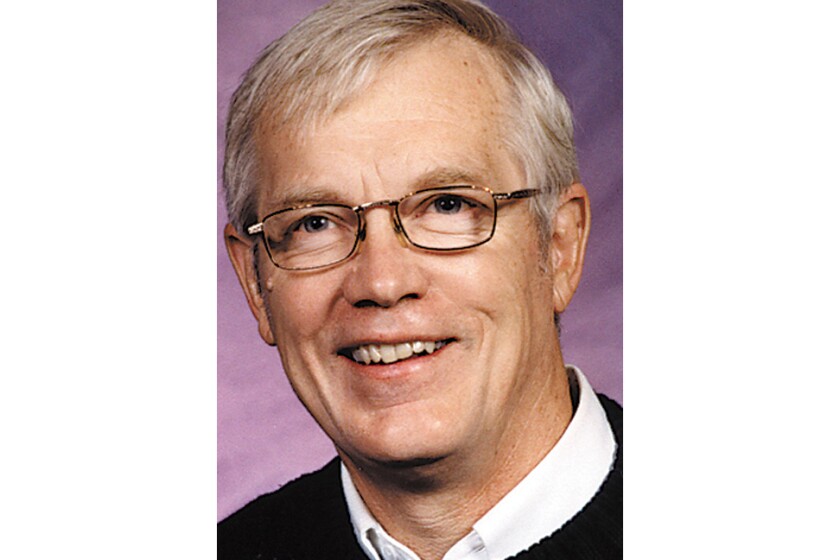I want to begin with an apology.
This apology is aimed at all of the young people who use drugs, struggle in school, have a record of poor school attendance, may not graduate, and find themselves in trouble.
ADVERTISEMENT
As adults, we make mistakes. We don’t often do things correctly the first time or even the second or third time — we make mistakes. This goes for parents, educators, politicians, law enforcement and social service personnel, and virtually every adult.
As a result of our errors, a young person may have lost hope. This loss of hope is usually why things turn out badly for young people.
We owe all of those young people an apology. As adults, we can do better. After all, we’re the adults in the room.
When a young person has hope, they can conquer the world. Without hope, a person can sink to the lowest depths, like using drugs or committing acts of violence.
Whenever I pick up a newspaper, I see stories about young people and drugs. Does the use of drugs have an impact on school performance? Of course. My intent is to cite some conclusions based on research about the connection between students leaving school without a diploma and drug use among that same group.
The research is clear. Students who drop out or leave school without their diplomas are much more likely to use drugs.
When students stay in school and graduate from high school, they are less likely to use drugs and not commit acts of violence (80% of the males in state and federal prisons do not have a high school diploma).
ADVERTISEMENT
Here’s the problem I have. Because my conclusions are valid, why don’t we put as much effort into helping students graduate as we do in treating students who use drugs? Indeed, assisting students in graduating is probably our best drug prevention strategy.
Let’s take a look at what the research has concluded.
First, make no mistake; high school graduation is a drug prevention strategy. When we spend our efforts to help 100% of our students graduate, we are taking a massive step toward eliminating drug use among our high school and college-age youth. We need all hands on deck to make this happen — educators, parents and citizens.
Second, if we ignore the correlation between drug use and students who leave school early, we will continue fighting a seemingly endless drug prevention battle. We have fought this battle for decades and decades, and we still face a drug crisis in the United States. We must put the same time and energy into helping 100% of our students graduate.
Third, for young people who use drugs, drug usage has become part of their culture. We need to make graduation from high school part of the culture for all youth. We need to work harder and smarter.
Fourth, when something does not work, it behooves us to try a new approach. How many dollars has the United States spent reducing the drug problem over the past 50 years? The answer is too huge even to contemplate.
So, why not try something different? Some of these efforts have been fruitful. But why not put dollars into a new approach by helping those 20-50% of our students who don’t graduate high school?
ADVERTISEMENT
Fifth, drug use has a detrimental effect on brain development, which is one reason why teens who use drugs make bad choices. What if we made education just as exciting for teens as it is for getting high on drugs?
Sixth, students who use drugs usually have poor attendance. They have poor attendance because they don’t see education as something they value and don’t find it interesting, nor are they successful. Nearly 60 years in education have taught me that when learning is enjoyable and educators treat students with respect and dignity, students will come.
Seventh, the positive results of having drug-free youth in our country are enormous. Right off the top of your head, think of 10 reasons why.
Space doesn’t permit me to list the sources that support my conclusions. I am citing them in a forthcoming monograph. If you would like a copy, give me a call.
I have worked with many young people who struggled with overwhelming burdens to overcome. Their stories would have caused most of us to turn to the dark side. Yet, many of these young people kept focused on that one big goal in life — the high school diploma. I don’t know how they did it, but they did.
Maybe it was a parent or grandparent that kept them focused. Perhaps it was a teacher or a coach, or an elder. Maybe it was a friend. Perhaps it was the Creator.
Maybe they saw something in themselves that drove them to stay in school. It could be something as simple as reading a brochure or seeing a poster. Perhaps they went to drug counseling. Somehow, they made it.
ADVERTISEMENT
Yes, lots of kids need help. Some need serious mental health counseling. But all kids want to graduate and all kids want to have hope. We can reach all kids. The problem, I have come to believe, is not with them. The problem is with us.
Riddle: What do we have in December that we don’t have in any other month? (Answer: The letter D. What don’t we have in our drug and alcohol abuse programs that we should have? (Answer: A serious strategy for helping all students graduate.)
100%
I want to thank Ponemah and Red Lake Elementary ��������s for putting “you can graduate” bookmarks in the dictionaries given to all third-grade students on behalf of Sunrise Rotary.
John R. Eggers of Bemidji is a former university professor and area principal. He also is a writer and public speaker.








